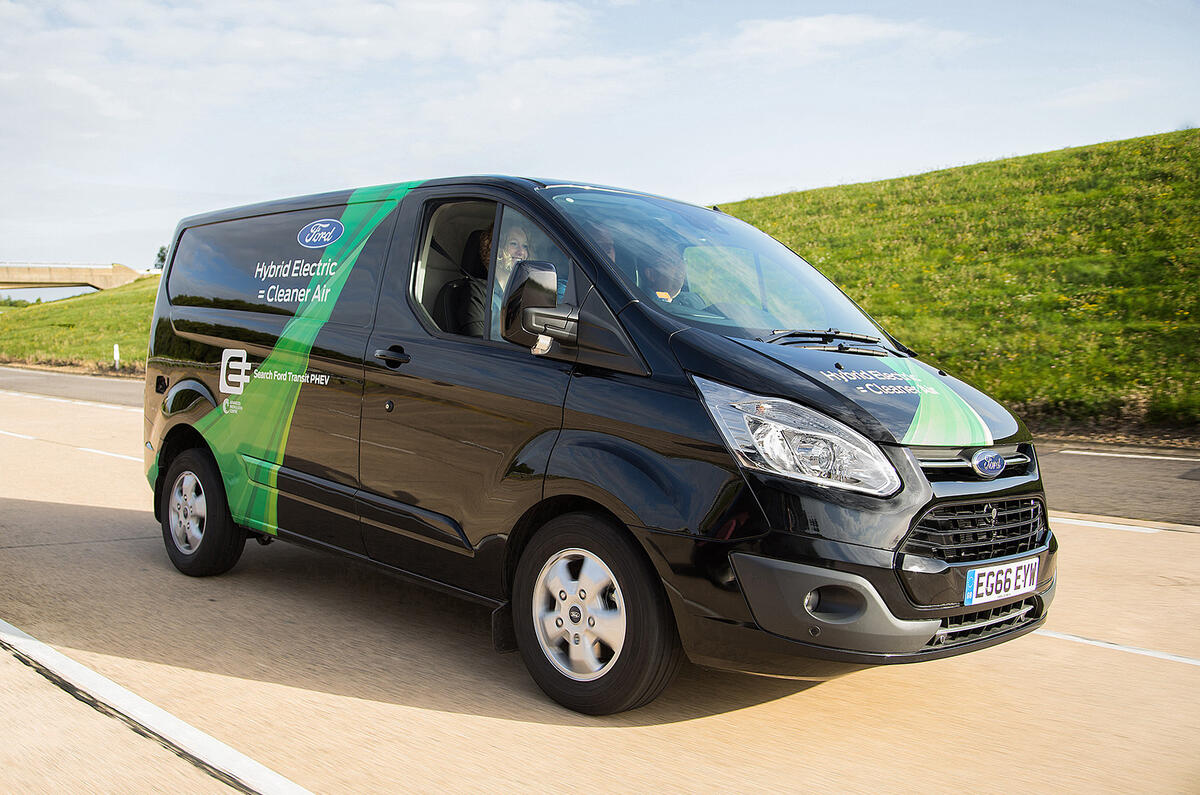Ford has revealed its first-ever range-extender hybrid powertrain in a low-emissions Ford Transit that should help reduce emissions in urban areas - the domain of commercial vehicles - after it goes into production in 2019.
Drive is by a lithium-ion battery pack and Bosch front-mounted electric motor, charge kept topped-up by a 1.0-litre Ecoboost petrol engine.
Ford hasn’t revealed the battery pack size, but project director Mark Harvey said it will be sufficiently sized for "30 miles of range, based on the current NEDC test cycle". Development of the range-extender is being handled by Bosch using much of its own technology, while the prototypes have been built by Prodrive.
Ford won’t comment on car applications of the range-extender, but the opportunity clearly exists.
A fleet of 20 Transits will go into operation in London, feeding data back to Ford to inform the final engineering of the production model.
‘We can fine tune features like range, performance and driveability,’ said Harvey.
The weight of the lithium ion batteries and additional motor and reduction gearbox, reduce the overall carrying capacity of the Transit by around 200kg. But it can still carry a one tonne pallet.
Ford has also been careful to package the components to avoid interfering with the Transit’s ‘cube’ – the volume of the load area.
The battery is packaged under the rear floor and feeds electrons forward to the motor controller and Bosch motor, which is rated at 200Nm. That’s half of what a typical diesel will deliver, but the single-gear reduction box, doubles that to 400Nm at the two driven, front-wheels, comparable to a 2.0-litre TDCi diesel.
The Ecoboost is only on-board to generate electric power via a generator.
Harvey said the Ecoboost will be tuned to be as efficient as possible when driving the generator, although in a test ride, the Transit ran only in EV mode, while Bosch fine tunes its operation. Harvey is keen to stress that the Ecoboost will not drive the front-wheels directly.
The goal of course is lower the contribution to NOx and particulates of delivery vans in city centres. In EV mode, the Transit will be zero emissions, but with the petrol range-extender running it will generate less than 0.06g/km of NOx, compared to 0.08g/km of a diesel. CO2 is predicated to be ‘less than 50g/km in the NEDC cycle’.








Join the debate
Add your comment
Lol, it only makes 0.02g of
Lol, it only makes 0.02g of NOx less than a diesel, what a waste of time ! The money would be better spent making improvements to the diesel's NOx emissions and/or using a small 2 cylinder diesel engine as a range extender, this would generate even less NOx. And of course, the major flaw in the quoted figures for NOx output is that its comparing a 1 litre 3 cylinder petrol with a 2 litre 4 cylinder diesel, of course the petrol will be lower, it s a smaller engine with less cylinders !
wow
Ford really are on the EV boil, come 2019 at the earliest